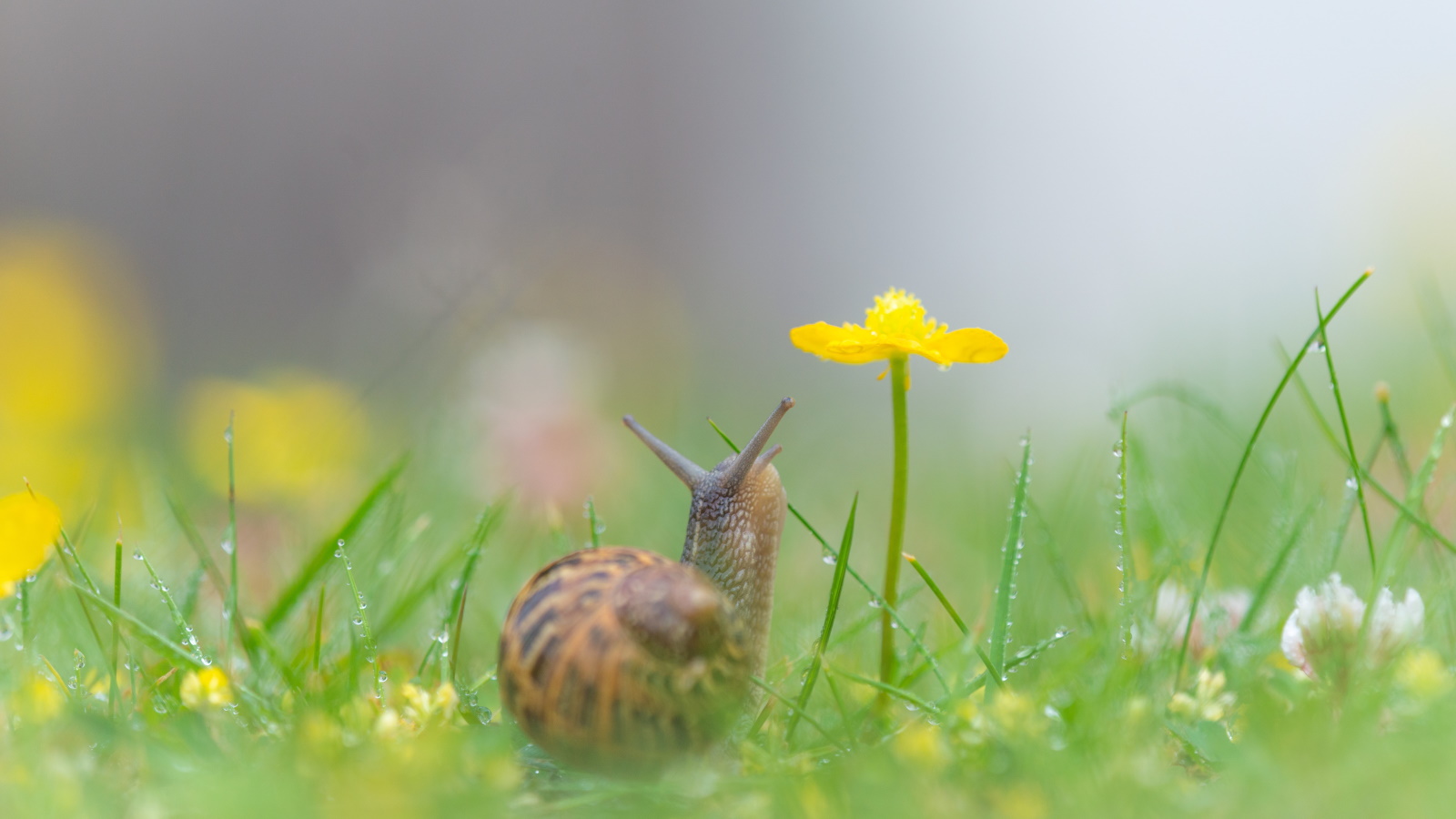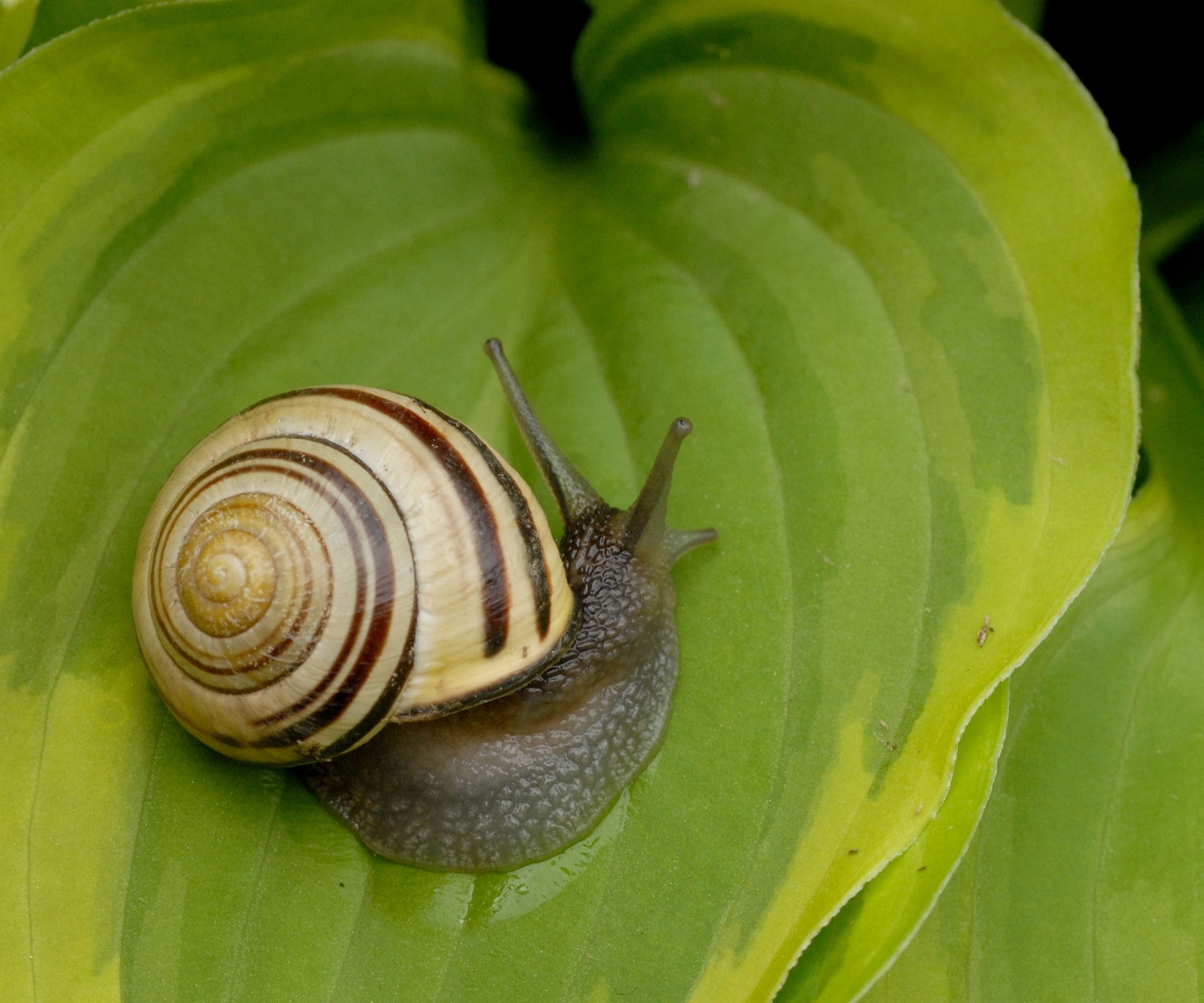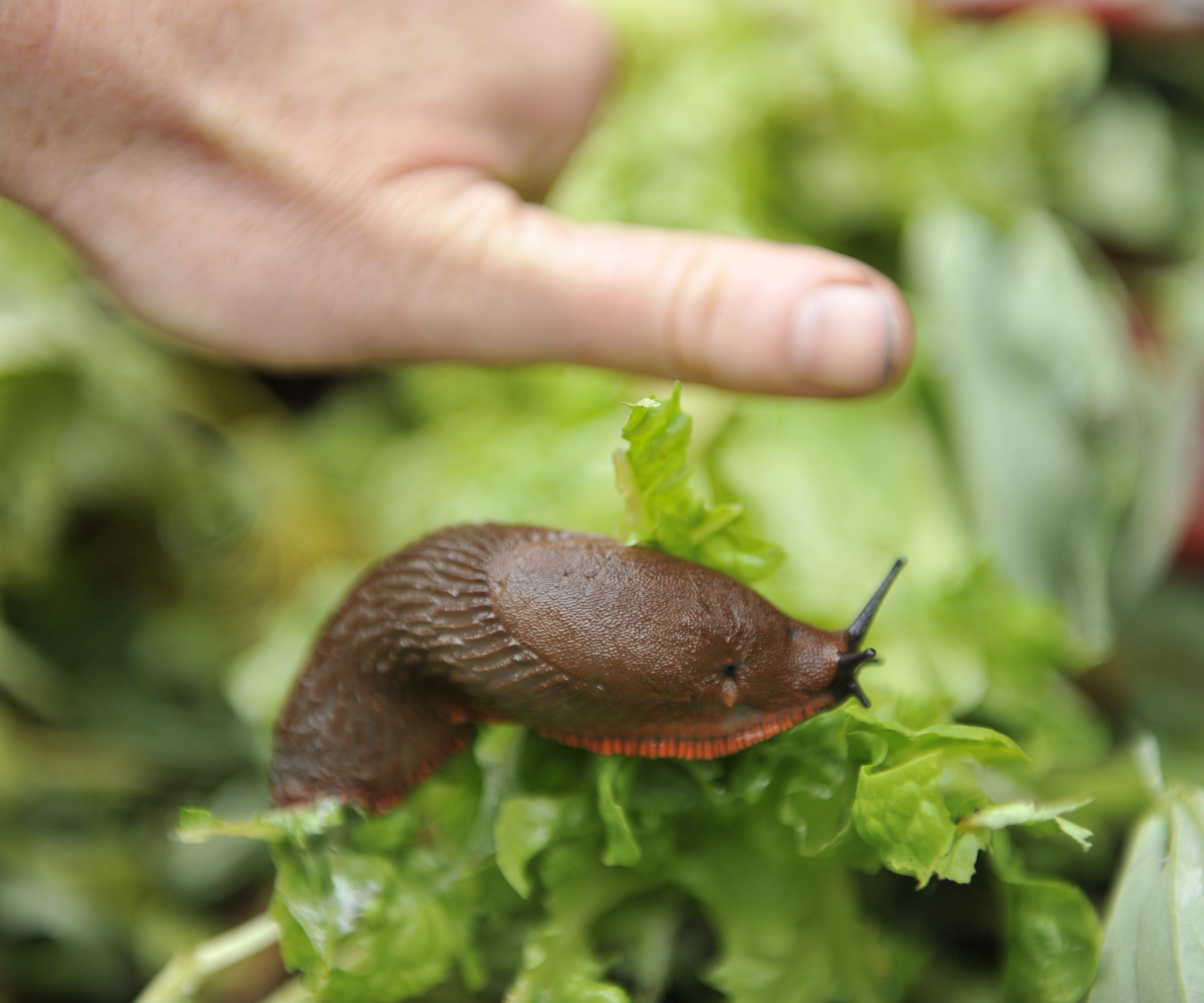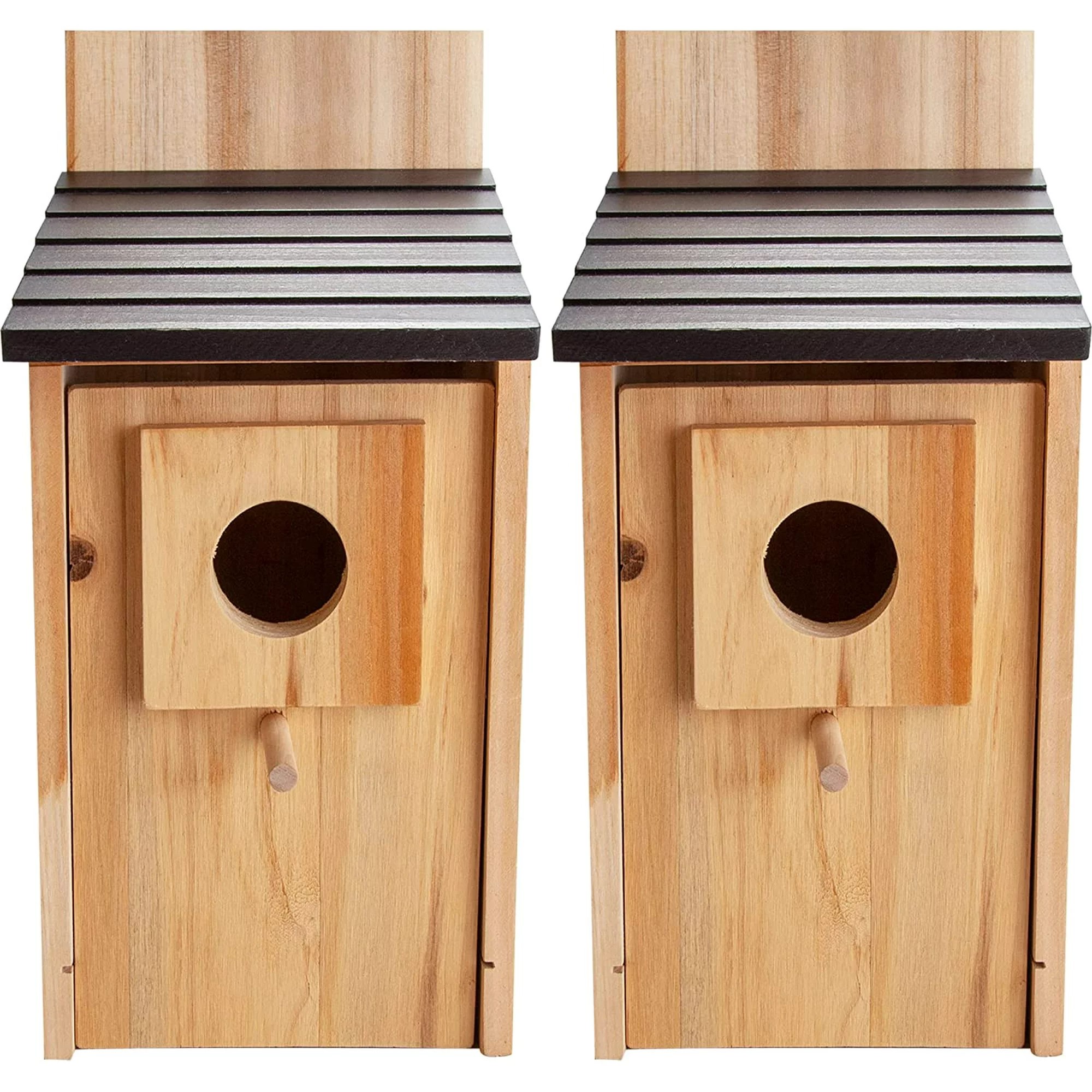Can slugs and snails ever be good for the backyard? This gardener says 'it's time for a rebrand'
Gastropods play a vital role in the garden ecosystem. So, is it time for gardeners to rethink the relationship with these supposed pests?


Design expertise in your inbox – from inspiring decorating ideas and beautiful celebrity homes to practical gardening advice and shopping round-ups.
You are now subscribed
Your newsletter sign-up was successful
Want to add more newsletters?

Twice a week
Homes&Gardens
The ultimate interior design resource from the world's leading experts - discover inspiring decorating ideas, color scheming know-how, garden inspiration and shopping expertise.

Once a week
In The Loop from Next In Design
Members of the Next in Design Circle will receive In the Loop, our weekly email filled with trade news, names to know and spotlight moments. Together we’re building a brighter design future.

Twice a week
Cucina
Whether you’re passionate about hosting exquisite dinners, experimenting with culinary trends, or perfecting your kitchen's design with timeless elegance and innovative functionality, this newsletter is here to inspire
Gardeners have long battled with slugs and snails. Borders and pots in the backyard are an open buffet for these supposed pests: drawn to fresh new foliage, recently planted perennials or young seedlings that we have tirelessly nurtured.
While snail pace is often considered slow to the point of being sedentary, hungry gastropods seem to eat rather quickly, able to decimate our prized plants in a single night. As a gardener, I have had my fair share of plant heartbreak, with slugs and snails feasting away without a care for my gardening plans.
Indeed, the relationship between gardener and gastropod has long been fractious. While many of us are intent on learning how to get rid of slugs and snails in the backyard, searching online for innovative or new slug control methods, is it now time to rethink their role in the garden ecosystem? Today, they are considered great garden recyclers and composters, and the slug and snail rebrand is underway.

Are slugs and snails good for the backyard?
Gardeners, myself included, have long viewed slugs and snails as common garden pests. These gastropods can decimate our plants, destroying salad leaves, dahlia blooms and fruiting tomatoes.
While frustration and heartbreak might cause us to reach for the slug pellets, it is time to rethink the role that slugs and snails play in the garden ecosystem. Not only are they vital in the decomposition and composting process, but they are also a food source for mammals, amphibians and birds.
The benefits of slugs and snails

Slugs and snails are the unsung composting heroes of the backyard. They feed on fallen leaves, flowers and decomposing material, and are an invaluable part of the composting process. Essentially, slugs and snails turn garden waste into compost, like miniature mobile composting machines operating non-stop, without pay.
So, if you are wondering how to make compost in your backyard this year, remember that these small invertebrates have been doing so without you even realizing it. While we might not notice them, we need slugs and snails for healthy garden borders.
Design expertise in your inbox – from inspiring decorating ideas and beautiful celebrity homes to practical gardening advice and shopping round-ups.
In addition to this, many common backyard mammals and bird species feed on garden gastropods. Birds enjoy feasting on slow and sedentary gastropods. Many popular songbirds need slugs and snails as part of a nutritious diet, so if you are concerned about slug damage in your garden borders, consider installing bird boxes to encourage birds to nest in your yard.
Frogs also eat slugs and snails, with gastropods making up a large part of a frog’s diet. If you are looking for wildlife garden ideas this year, consider our guide on how to create a wildlife pond, encouraging natural predators - such as frogs - which will help keep slugs and snails under control and improve biodiversity in your backyard.
Problems with slugs and snails in the yard

Many species of slugs and snails feed on live plant material that is still growing, as opposed to stems, flowers or leaves that have already dropped or fallen. It is for this reason that many gardeners often consider gastropods the enemy.
Common garden snails are one of the many species that can be found feasting on plants in the backyard, attracted to soft fleshy leaves and seedlings. I have struggled to protect hostas, dahlias and salad crops from attack, with slugs and snails munching through the flower and vegetable patch, leaving messy holes and slimy trails as they feed.
There are also many harmless tricks to try, such as this cucumber hack to stop slugs and snails, whereby you use slices of veg to lure unknowing pests, before removing them far away from your plot.
While there are many products available online that can deter and repel slugs and snails, such as these organic pellets available to buy at Walmart, why not consider planting some slug-repellent plants near those crops that you want to protect?
Rosemary and lavender are often considered useful at repelling gastropods, so my advice would be to plant these herbs sporadically, near the kitchen and vegetable gardens. Alternative methods are also available, such as using copper tape, available from Walmart, around the rim of pots to protect prized plants grown in containers.
FAQs
What are the best natural solutions to deter slugs and snails from plants?
If you are worried about slugs and snails causing damage to your prized plants, why not encourage birds and frogs in your garden? Providing a habitat for these natural predators of gastropods will help to keep their numbers in check during the growing season. When it comes to vegetable crops, make sure you wait and plant out slightly more mature crops into your beds, as it is the younger ones that are tastier to the slugs.
While we might consider slugs and snails as pests, in reality, they are the unsung composting heroes of our gardens and play a vital role in the natural ecosystem of the backyard. If you are looking to deter slugs and snails without using pesticides, consider incorporating herb garden ideas in your outside space, as many fragrant herbs are known to repel gastropods.

Thomas is a Content Editor within the Gardens Team at Homes and Gardens. He has worked as a professional gardener for both public spaces and private estates, specializing in productive gardening, growing food and flowers. Trained in Horticulture at the Garden Museum, he has written on gardening and garden history for various publications, including The English Garden, Gardens Illustrated, Hortus, The London Gardener and Bloom. He has co-authored a Lonely Planet travel book, The Tree Atlas, due out in 2024.
